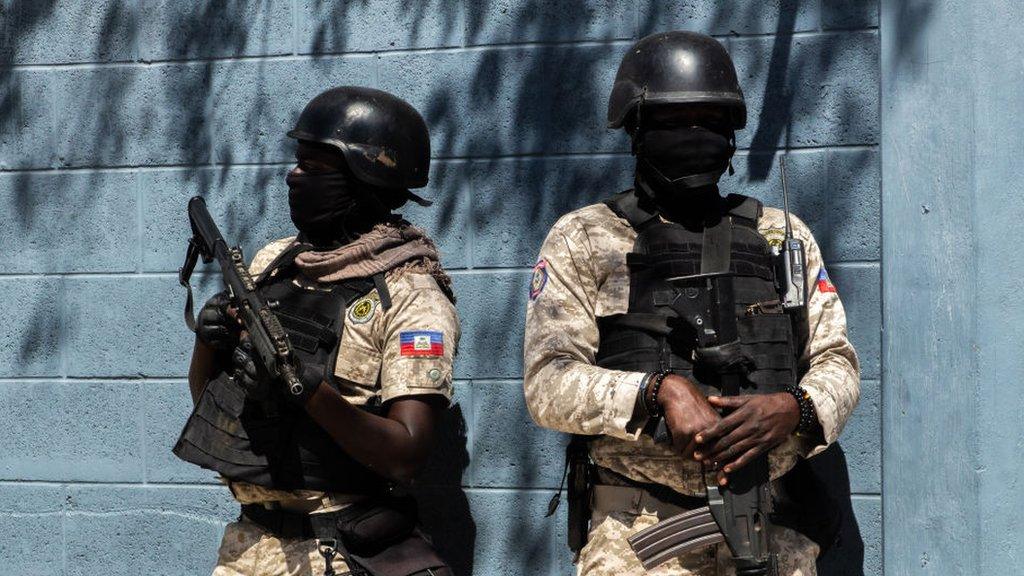Haiti: Where aid delivery depends on talking to 300 gangs
- Published
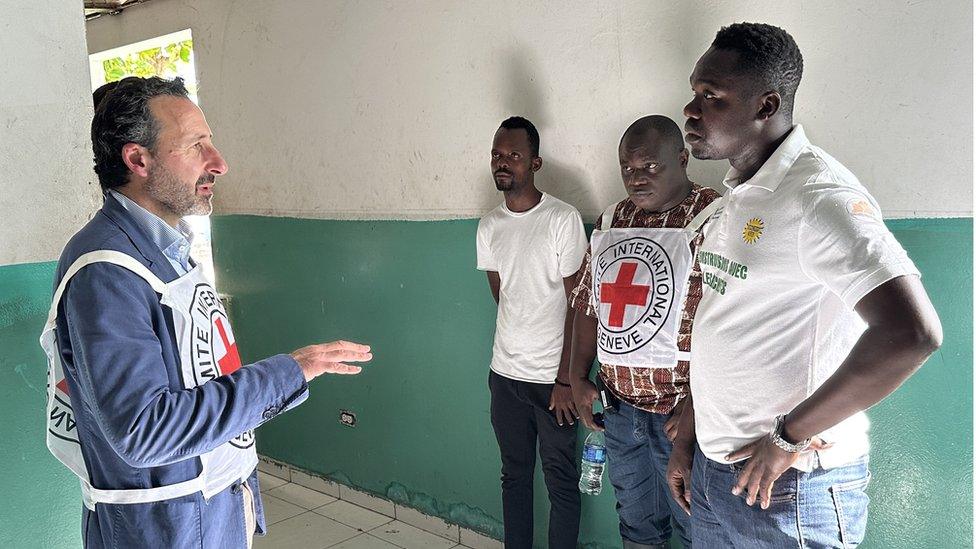
Robert Mardini (left) spoke to Dr Odans Elmondo (right) at St Mary's hospital in Brooklyn, Port-au-Prince
The level of armed violence in Haiti has become so extreme that the International Committee of the Red Cross (ICRC) has to engage with hundreds of gangs in order to be able to deliver humanitarian aid, ICRC Director-General Robert Mardini says.
About 300 gangs are active across Haiti and 80% of the capital, Port-au-Prince, is under gang control.
Many health facilities have stopped operating because of the gang violence.
Health staff are often threatened.
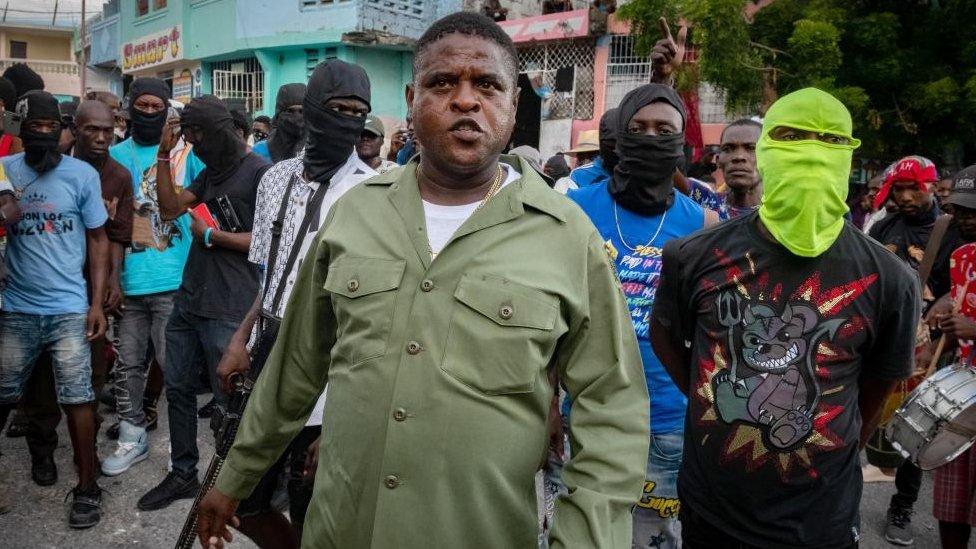
Powerful gangs like the G9 and its leader Jimmy Cherizier control large parts of the capital
ICRC Director-General Robert Mardini spoke to the BBC from Port-au-Prince following a two-day visit to the Caribbean nation.
"In my 27 years serving the ICRC, I have rarely seen such a toxic and terrible combination of adverse factors hitting communities living in shanty towns," he said, describing streets flooded with sewage-contaminated water in the impoverished neighbourhood of Cité Soleil.
"With armed violence endemic, people live in constant fear of the next clash, the next kidnapping," he added.
The levels of insecurity have been such that many health care facilities have stopped operating and large parts of the population lack access to essential services.
Mr Mardini described speaking to one young doctor at a clinic who was "performing miracles" with just the most rudimentary tools available.
With much of the capital fought over by rival gangs, locals are often confined to their neighbourhood and cannot cross the "fault lines" dividing their area from that controlled by another group.
One man described to Mr Mardini how, in order to get his heavily pregnant wife to hospital to give birth, he had had to first push her in a wheelbarrow through the flooded streets to where he could transfer her onto a motorbike, before finally being able to lift her into a car for the last stretch of the journey.
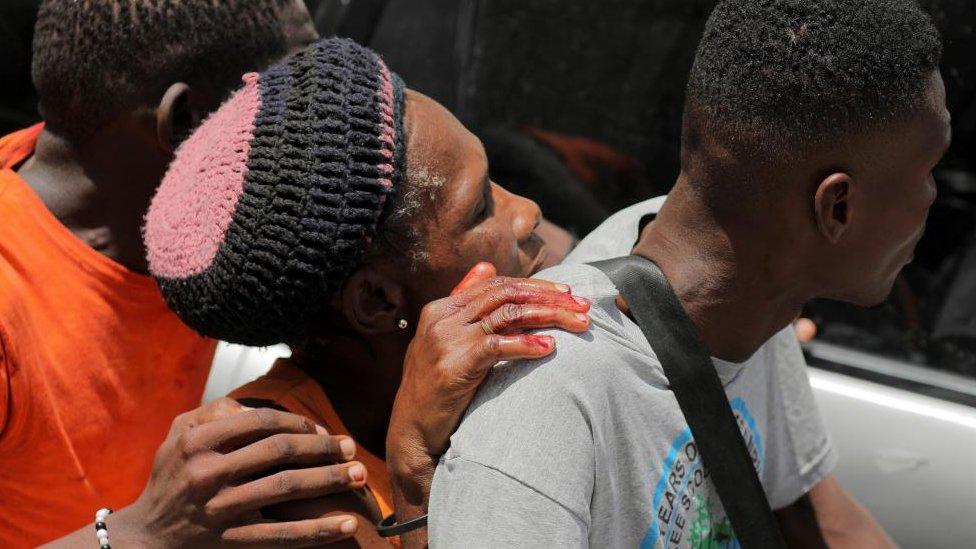
A lack of ambulances means the wounded are often transported by motorbike
In order to gain access to areas where there is no state control and armed groups roam freely, the ICRC engages in "continuous dialogue" with the gangs.
"We do it systematically, one zone after the other. The number of groups is overwhelming and I can't pretend we have a dialogue with all of them," Mr Mardini explained, adding that the ICRC's ability to help Haitians depended on being known and accepted by the people on the ground.
Mr Mardini says the dialogue with the gangs is something that the ICRC has to do, day in day out.
"If we interrupt it for seven or 10 days, we can't take it for granted that we can resume from where we left off, because very often there is a loose chain of command within the groups and there's infighting," Mr Mardini said of the constant changes within the gangs themselves.
The ICRC's director-general said that his organisation would increase its humanitarian efforts in Haiti in 2024 in response to the growing needs there.
The ICRC plans to step up its training for emergency health staff and Haiti's ambulance service to make accessing emergency services easier for those most affected by the violence.
It will also increase the number of hospitals it provides with medical kits to treat wounded patients.
Mr Mardini also urged the international community to "invert Haiti's downward spiral".
"When you have five million people depending on humanitarian aid, there is an ethical and moral responsibility to boost aid to Haiti," he concluded.
Related topics
- Published18 August 2023
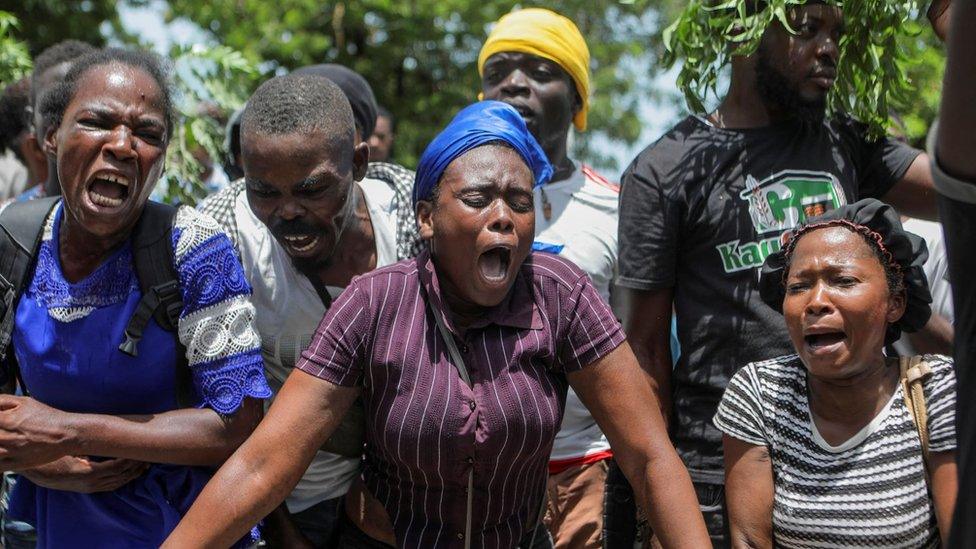
- Published8 March 2023
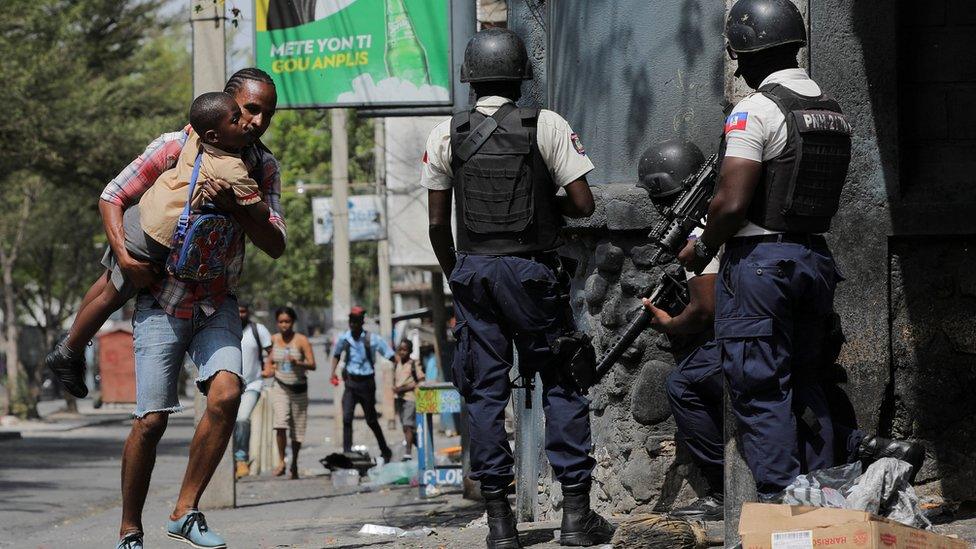
- Published13 February 2023
